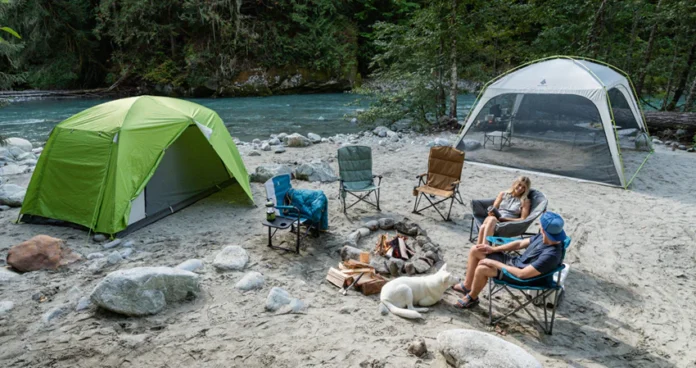Many people go into the woods to find peace or excitement, but the majesty of nature comes with its own set of rules and unpredictability. Even though experienced campers know their safety plan like the back of their hand, new campers may not realize how many things can affect their health when they are outside. This guide is meant to help fill that knowledge gap and ensure you’re safe and sound while camping.
Choose the best location for your camp
Finding the right camping location involves more than just looking for the most picturesque views; it’s crucial to your general safety. A thorough investigation into the area you have chosen can offer priceless information about any potential dangers. Depending on where you are in the world, these risks could include things like overly thick forests or endless deserts, bears or snakes, and sometimes even dangerous landslides and flash floods. Always choose well-maintained, well-established campgrounds with defined pathways. These locations frequently offer crucial conveniences like access to clean water, emergency services, and even weather warning systems.
Practice campground safety
A thoughtful campground setup can significantly reduce the risk of having to cut your awesome adventure short. Place your tent on level, raised ground at all times. Being uphill can help you notice any approaching wildlife or other potential dangers in low-lying areas, which are prone to flooding. Avoid being too close to any loose or dead limbs that can suddenly fall. In order to reduce the draw of wildlife, your cooking and dining areas should be somewhat far from your sleeping areas. Speaking of wildlife, it’s important to secure your food storage. When bear-proof containers are available, use them; alternatively, hang food items from trees in bear bags. This will lessen the possibility of nighttime animal visitors.
Bring all the necessities
Make sure you bring everything you will need for your camping trip’s comfort and safety. A sturdy, weatherproof tent that can withstand wind and rain is a must, as are sleeping bags that are suitable for the season’s temperatures. Another requirement for protection against unforeseen weather changes is waterproof clothing, so read a little about that before embarking. When it comes to gadgets, quality OTF knives are a useful and adaptable instrument in particular. Out-the-front knives will come in handy for things like cutting rope to set up your camp, making traps, cooking, and in some circumstances, acting as self-defence tools. Also at the top of your packing list should be a complete first-aid kit with bandages, antiseptic, painkillers, tweezers, and any prescription meds you might require. A reliable torch with extra batteries and a firestarter kit with waterproof matches and kindling are two more essentials for being prepared.
Be weary around water
Even though we often tell people to bring enough water to stay hydrated, water plays a much bigger role in camping safety than your water bottle. Be aware of the risks that come with camping near a river, lake, or ocean. Swift currents, items that are hidden underwater, and even parasites can turn a beautiful place to swim into a dangerous one. Also, don’t camp too close to a water source without figuring out the risk of flooding. This is especially important in places where it rains often and hard. Taking these things into account will give you an extra layer of safety when you’re outside.
Don’t forget to communicate with the outside world
Although detaching from daily life is one of the appeals of camping, it’s essential to be in touch with the outside world for safety concerns. Always share your camping plans with a family member or close friend, including where you’ll be and when you expect to return. Cell phone service is frequently patchy or nonexistent in rural locations, so if you ever find yourself in a sticky position, having a fully charged satellite phone or an emergency locating beacon can make all the difference.
By now, you’ve learned more than just a list of things to bring or places to avoid. You’ve also learned how to plan outdoor trips with safety in mind. A camping trip is like a chain: it’s only as good as its weaker link, and even a small mistake can make the whole thing worse. So, keep this guide with your other planning tools for your next trip into the wilderness. Because nature always has some interesting plans to surprise us and challenge us, it pays to be savvy in the art of self-preservation.
Read More Article ibommanews

